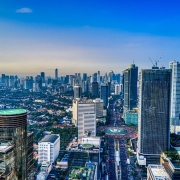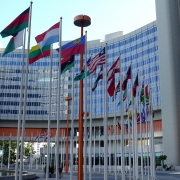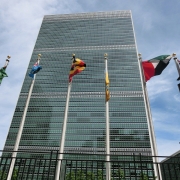What is Pancasila?
Topic of Study [For H2 History Students]:
Paper 2: Search for Political Stability
Section B: Essay Writing
Theme I Chapter 2: Approaches to National Unity
Historical Context
On 1 June 1945, Sukarno gave a speech to the Investigating Committee for Preparatory Work for Independence (Badan Penyelidik Usaha Persiapan Kermerdekaan, BPUPK).
In that speech, the concept of Pancasila was introduced. The word itself was derived from Sanskrit, in which “Panca” means five and “sila” implies principles.
Sukarno’s Interpretation
The Five Principles were as follows:
- Belief in God (Ketuhanan yang Maha Esa)
- Nationalism (Nasionalisme)
- Internationalism (Internationalisme)
- Democracy (Musyawarah Mufakat)
- Social Justice (Kesejahteraan Sosial)
Later, the second iteration of the Pancasila was introduced, the Pancasila was reordered. After the promulgation of the 1945 Constitution of the Republic of Indonesia, Pancasila became the fundamental political philosophy of the independent state.
Suharto’s Interpretation
Under Suharto’s New Order, the Indonesian government further institutionalised Pancasila as a national ideology. Although there was a change of political leadership in the 1960s, the Pancasila was a universal concept that strengthened national identity.
In 1974 Pancasila Industrial Relations (Hubungan Industrial Pancasila) was promulgated. This served to legitimise widespread state intervention, at the same time it nullified the legitimacy of strike action via its emphasis on familial and harmonious relations between labour, capital and the state…
While the importance of loyalty to the New Order was increasingly mediated through state-defined ideas about Pancasila, against the backdrop of an image of the Indonesian nation as a united and harmonious family (with Suharto as the father)…, which exhorted Indonesians to work together to develop the nation and bring about economic take-off, under the leadership of Suharto, the “father of development” (Bapak Pembangunan).
By Mark T. Berger, The Battle for Asia: From Decolonization to Globalization
Berger’s analysis revealed the signficance of Pancasila as an ideological basis for stronger state involvement not only for the promotion of social cohesion, but also for the pursuit of economic development.
The proliferation of Pancasila: Education
In practice, the New Order regime introduced education policies that emphasised on the study of Pancasila across all levels of society, starting with primary school students.
In 1978, the “Guidelines for Understanding and Practices of Pancasila” (P4) was introduced in the People’s Consultative Assembly.
The New Order enforced one single interpretation of state ideology and how to put it into practice by way of the then-popular program, a Course on the Guidelines for Internalizing and Practicing the Pancasila (Penataran P4/ Pedoman Penghayatan dan Pengalaman Pancasila). Declaring itself to be anti-communist, the New Order regime made Pancasila the political instrument upon which all policies had to be based.
By Shingo Minamizuka, World History Teaching in Asia: A Comparative Survey
In 1980, students in primary and secondary schools, as well as universities, were required to undergo the P4 Training. It aims to foster the comprehension and application of the P4 as a form of moral education.
What can we learn from this article?
Consider the following question:
– Assess the significance of Pancasila as a national ideology that was introduced to forge national unity in post-independent Indonesia.
Join our JC History Tuition and learn how to organise your thematic knowledge for essay and source based case study questions.
The H2 and H1 History Tuition feature online discussion and writing practices to enhance your knowledge application skills. Get useful study notes and clarify your doubts on the subject with the tutor. You can also follow our Telegram Channel to get useful updates.
We have other JC tuition classes, such as JC Math Tuition and JC Chemistry Tuition. For Secondary Tuition, we provide Secondary English Tuition, Secondary Math tuition, Secondary Chemistry Tuition, Social Studies Tuition, Geography, History Tuition and Secondary Economics Tuition. For Primary Tuition, we have Primary English, Math and Science Tuition. Call 9658 5789 to find out more.





